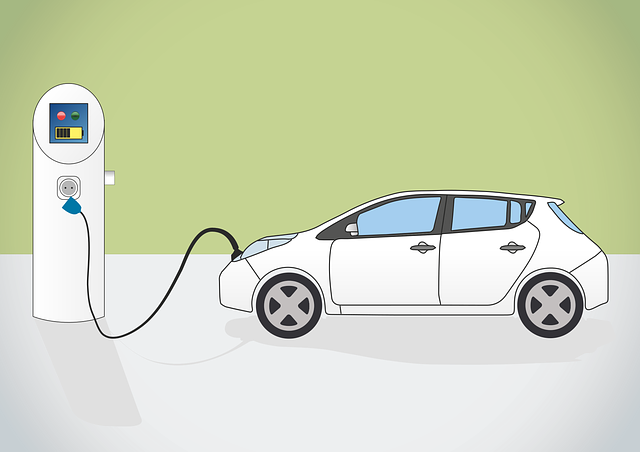TL;DR:
Shipping electric vehicles (EVs) requires specialized carriers due to their sensitive battery systems, power needs, and overheating risks. When selecting a carrier, prioritize experience in EV transport, necessary infrastructure like temperature control, and robust insurance coverage. Effective communication, documented agreements, and real-time tracking further ensure secure and seamless transportation of EVs.
- Understanding the Unique Considerations for Electric Vehicle Shipping
- Identifying Reliable Car Shipping Carriers: Key Factors to Evaluate
- Ensuring a Smooth Shipping Process: Best Practices and Tips for Electric Vehicles
Understanding the Unique Considerations for Electric Vehicle Shipping

When considering shipping options for electric vehicles, there are unique considerations that differ from traditional gasoline-powered cars. These vehicles come with specific challenges and requirements due to their specialized nature. One key aspect is ensuring the safety and integrity of the battery system during transit. Electric vehicle (EV) batteries are not only high-value but also require careful handling to prevent damage or overheating, which could lead to serious safety hazards.
Additionally, shipping companies need to be adept at navigating charging infrastructure and managing power needs. Since EVs cannot operate on conventional fuel, they must be properly charged before and after transportation, requiring coordination with both the sender and receiver to ensure a smooth process. Reliable car shipping carriers specializing in EV transport will have the necessary equipment and expertise to handle these requirements, ensuring your electric vehicle arrives safely and in good condition.
Identifying Reliable Car Shipping Carriers: Key Factors to Evaluate

When it comes to shipping electric vehicles, identifying reliable carriers is paramount to ensure your car’s safe arrival. There are several key factors to evaluate when selecting a carrier. Firstly, research their experience and specialization in EV transportation. Not all carriers are equipped to handle the unique requirements of electric vehicles, such as proper temperature control and specialized handling. Reputable carriers will have the necessary expertise and infrastructure to ensure your car’s safety during transit.
Secondly, check their insurance coverage and customer reviews. Shipping an electric vehicle involves significant financial risk, so it’s crucial that the carrier has adequate liability insurance to protect you in case of damage or loss. Online reviews offer valuable insights into a carrier’s reputation for reliability, punctuality, and customer service. By carefully considering these factors, you can significantly reduce risks and find a shipping carrier you can trust.
Ensuring a Smooth Shipping Process: Best Practices and Tips for Electric Vehicles

When shipping an electric vehicle (EV), ensuring a smooth process requires additional consideration due to their unique features and infrastructure needs. Start by choosing a carrier that specializes in EV shipping, as they’re equipped with the necessary knowledge and equipment to handle these vehicles safely. Proper securing of the vehicle using specialized equipment is paramount to prevent damage during transit.
Communication is key; maintain open lines with your carrier throughout the process. Keep records of all agreements, including any specific handling instructions or requirements for charging stations at the destination. Verify that the carrier provides real-time tracking updates so you can monitor the shipment’s progress and address any potential issues promptly. Regular communication ensures a seamless shipping experience for your electric vehicle.
When shipping electric vehicles, understanding the specific considerations and choosing reliable carriers is crucial for a smooth process. By evaluating factors like experience in EV shipping, insurance coverage, and eco-friendly practices, you can select a carrier that ensures your vehicle’s safe and efficient transportation. Adhering to best practices, such as thorough documentation and secure loading, further mitigates risks, making the shipping of electric vehicles a seamless experience.
